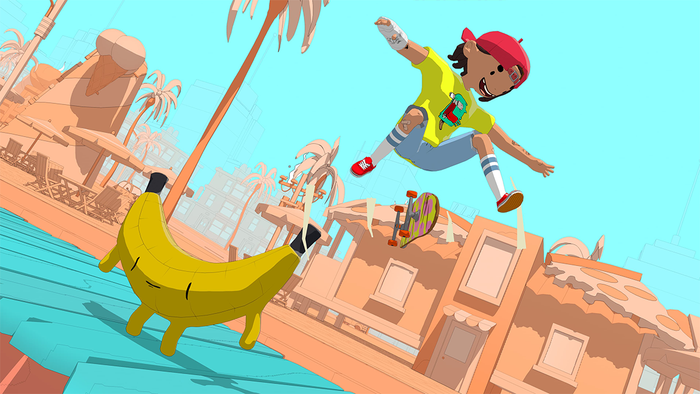
Featured Blog | This community-written post highlights the best of what the game industry has to offer. Read more like it on the Game Developer Blogs.
The Irresistible
A handful of examples covering emergent behaviour that's common and yet has no real effect on gameplay.

Whenever an airship boss is defeated in Super Mario Bros. 3, a wand drops from the top of the screen. Picking it up is required to move on to the next world, but doing so in mid-air is not.
Despite this, jumping for the wand is a common behaviour. It's fun to sync up Mario's ascent with the wand's descend, fascilitating a dramatic grab that culminates with Mario falling back down to earth and saving the day.
It's a very satisfying moment, but there are no gameplay ramifications to simply letting the wand settle on the floor before picking it up. Jumping for it is simply hard to resist.
irresistible, adj.
A represtnation of an optional action that does not result in any significant gameplay reward, yet is commonly carried out by a large percentage of players.
Let's take a look at a couple more examples.
Mega Man

mega_man_3_boss_gate
In the original Mega Man games, end-level bosses are always prefaced by an empty, single-screen room with two doors. These are a clear indicator that the end is just beyond the next turn, at which point many players choose to jump straight into the boss' lair.
When Mega Man connects with the door, the action freezes as the entrance opens up and the screen scrolls to reveal the final segment of the map. There's no reason to jump at the door, but it results in some areal acrobatics that firmly deposit Mega Man in the next area with punctuating, "It's on!" flair.
Street Fighter III

street_fighter_iii_battle_end
Many fighting games used to disable collisions or simply cut-off player input whenever a round of combat ended. Street Fighter III was one of the first to buck the trend, enabling the victor to execute a few extra moves following his opponent's loss. This proved quite satisfying as it allowed the winner to finish off a combo -- a naturally stylish string of attacks. Furthermore, it represented a contrast to the rest of the game by providing a short window of time during which some free hits could be scored.
I don't believe these "bonus shots" increased the super bar meter or affected the end-battle grade, but if they did, the rewards were minimal.
Metroid Prime

metroid_prime_door
Doorways in Metroid Prime are triggered by the player shooting them, at which point they open up after a variable amount of time (usually between 0-6 seconds). The reason for this is to hide data being streamed in the background, which leaves the player largely idle. At this point, concern over whether the shot was registered -- and plain frustration -- tend to set in, resulting in more blasts bombarding the door.
Unlike the other two examples, this is more of a "get on with it" behaviour that helps to vent frustration rather than being satisfying in itself.
These irresistible actions seem to be largely accidental; as far as the games are concerned, there's no reason for players to engage in them. They can be quite important to the overall experience, though, and once identified, they often become a defining part of a series or genre.
Are there any "irresistibles" you engage in on a frequent basis?
Radek Koncewicz is the CEO and creative lead of Incubator Games, and also runs the game design blog Significant-Bits.
Read more about:
Featured BlogsAbout the Author(s)
You May Also Like







